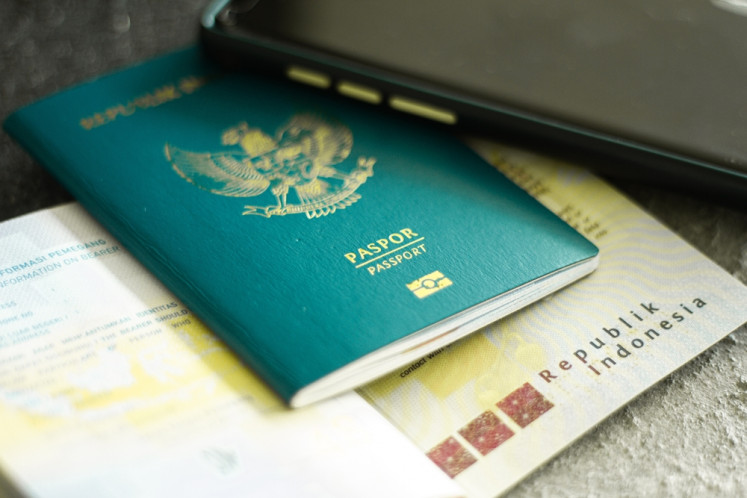Superblock: Dream or nightmare?
Is it a condo? Is it a five-star hotel? Is it an office tower? No, it’s a superblock — a mighty complex where residents can have everything they need
Change Size

I
s it a condo? Is it a five-star hotel? Is it an office tower? No, it’s a superblock — a mighty complex where residents can have everything they need ... Or can they?
Fed up with maddening traffic, Jakartans may see superblocks as a savior from their daily stress, believing these complexes can relieve the hassle of the hectic roads, with all-in facilities now just a short walk away.
Webster’s Dictionary defines a superblock as an urban area covering around 1 hectare, usually closed to through traffic, with interrelated residences and industries along with commercial, social and recreational facilities.
Basically, it is a dream city within Jakarta, where people can have their dream houses close to offices, malls, hospitals and other facilities that would otherwise take them hours to reach.
Superblocks have begun to spring up in Jakarta in recent years, with developers offering city dwellers all the exclusivity and a wide array of facilities within one area.
Some of the newest grand superblock constructions include Kemang Village in South Jakarta, Kalibata City (also in South Jakarta), St. Moritz in West Jakarta, Ciputra World in South Jakarta and Regatta in North Jakarta.
Urban economics expert from the University of Indonesia, Sonny Harry Harmadi, said the trend was understandable as one of the characteristics of the “modern” lifestyle that upholds values such as efficiency and effectiveness.
Sonny said, “these blocks will reduce the city’s costs arising from commuting, since most people who work in the capital live in the suburbs.”
Jakarta is estimated to lose Rp 12.8 trillion (US$1.43 billion) a year as a result of severe traffic congestion, a report released by the Presidential Work Unit for Development Monitoring and Control shows.
“This concept is the answer to the urban sprawls that have gotten out of hand. The superblock, which will be the center of all urban activities, will cut the costs,” Sonny said.
Bearing mostly English terms, superblocks target mainly first-class customers, who are usually time-sensitive and willing to pay plenty for the convenience these complexes promote.
Despite skyrocketing prices, superblock apartments have shown themselves to be attractive to this niche market.
St. Moritz director Budhi Gozali said his projects had received a positive response from clients, referring to the first three condominium towers that had almost sold out.
“We managed to sell 60 percent of 196 units offered in the New Royal Suite Tower [the fourth building] within just four hours of the launch,” he said.
Despite the great market enthusiasm, some urban experts have conveyed concerns, questioning the sustainability of such projects.
Suryono Herlambang of Tarumanegara University in West Jakarta said that since the infrastructure surrounding them was inadequate, superblocks would likely create new traffic congestion zones in the city as thousands of people were expected to crowd into these the areas providing employment for middle-class workers.
However, Suryono said the situation was not just the developers’ fault. The authorities that gave them permits to build the massive buildings were also to blame, he said.
“The authorities must first calculate the burden an area can support, before giving permits to developers,” he said.
A failure to make this calculation, architect Budi Pradono says, would result in shortfalls not only in infrastructure, but also mineral resources.
“Some of these superblocks cover more than 10 hectares, and are expected to draw huge quantities of water and electricity. Imagine what will happen to the surrounding environment if the authorities calculate their capacity incorrectly,” he said.
So, will superblocks solve Jakarta’s problems, or make them worse?









